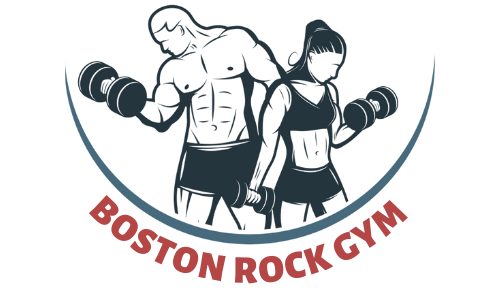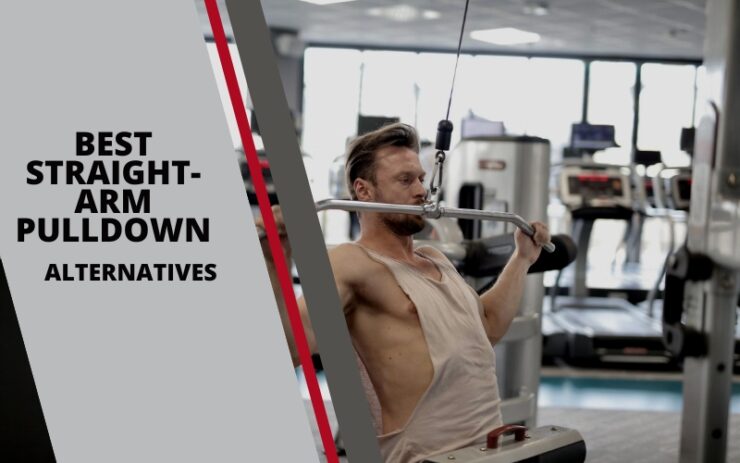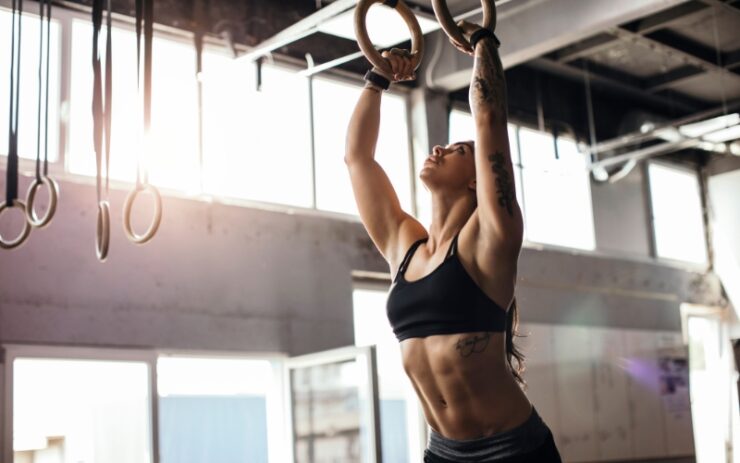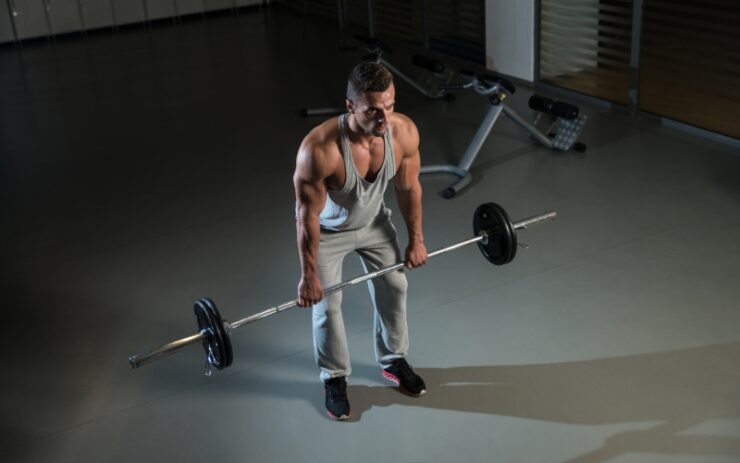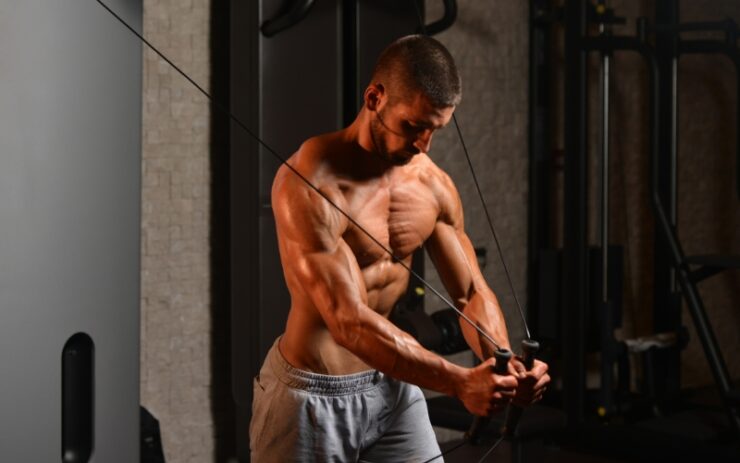Looking for effective straight-arm pulldown alternatives? You’re in the right place! Since doing this type of research on your own can be super time-consuming and inconvenient, we’re here to cut your work in half.
We provide you with a summarized list of the top 8 best straight-arm pulldown alternatives that you can do right away! Why waste time when you can start exercising and seeing the results sooner rather than later? Let’s hop right into it!
Contents
Top 8 Straight-Arm Pulldown Alternatives
1. Dumbbell Pullover
Dumbbell pullovers have been a staple of the bodybuilding industry for years. It may be a great shoulder warm-up for the lats if done lightly enough. A fantastic approach to isolate the lats and restore their length is to perform harder repetitions towards the end of a back exercise.
It won’t, however, produce the same sensation as a straight-arm pulldown. In contrast to the straight arm pulldown, the lats create less tension as the dumbbell is raised until there is none at the top.
Nevertheless, since the straight arm pulldown and the dumbbell behind the head both work the lats, using the dumbbell behind the head will give you an incredibly loaded stretch.
The ideal equipment for the dumbbell pullover is a flat-weight bench or something comparable, along with a little weight like a dumbbell. After you have the necessary equipment, follow these steps to perform a dumbbell pullover:
- Lie on a weight bench with the end of the bench under your head. With both of your hands, hold a dumbbell
- Point up with your arms spread out in front of you, just a little bit less than fully extended
- As far as is comfortable, slowly extend your arms back. Bring your elbows further apart from your torso to work your lats more as opposed to your lower chest. Throughout the workout, your arms remain just barely extended
- Return your arms to their original position gradually
2. Pull-Up
Straight arm pulldowns can be replaced with the pull-up, a traditional complex back exercise. It’s true that you need a surface to perform the pull-ups on, but even if you don’t already have one, a doorway pull-up bar is reasonably priced. Follow these steps to perform a pull-up:
- Your hands should be shoulder-width apart and pointing forward as you dangle from the pull-up bar
- Slowly raise your body until your shoulders are at bar height
- In a controlled motion, bring your body back down to the beginning position
3. Band Straight Arm Pulldown
This exercise is one of the closest alternatives to the straight-arm pulldown. If you have a place that is high enough to tie a band, you are set. If you have a power rack, it is your best bet. Unfortunately, once the band tension is decreased, you won’t experience the intense lat stretch at the start of the exercise.
But when you draw the band down because of the rising band tension, you will experience a great lat contraction. This is how you do it:
- Tie a band to something solid and fasten it over your head. For this, a power rack works wonders
- Walk backward while holding the band until there is considerable strain
- While bending over, keep your arms straight until they are almost overhead. This is the reason the band needs to be tied over your head
- Pull your elbows back while keeping your arms slightly bent. Your lats will feel better than your shoulders and arms will as a result of this
- Pull with a large chest and stop when your hands are at your sides. Once in this position, tighten your lats
- Go back to the beginning position gradually
4. Bent-Over Row
Bent-over rows are often performed with a barbell, so performing them at home could seem impossible. However, you may also use additional back-training tools like resistance bands, dumbbells, and kettlebells.
Even if you lack more conventional exercise gear, you may still use a bag filled with heavy books or any other suitable household objects as weights. To do a bent-over row using resistance bands, follow these steps:
- Ensure that the resistance band(s) are securely fastened below your feet that should be positioned shoulder-width apart
- Fold your knees slightly and bend your upper body forward such that it forms a 45-degree angle with the floor while maintaining a straight back
- When you encounter a modest bit of resistance, stretch your arms out and grab the resistance band. Palms facing backward, raise your hands
- Till your hands touch your torso, flex your elbows. The key objective is to get your back muscles to support this action. Throughout the action, keep your feet in the same place, your arms close to your torso, and your body in a straight line
- Once more, carefully lower your hands
5. Cable Crossover
You must connect single-grip grips to either side of a double-pulley cable machine at around shoulder height in order to do the cable crossing exercise. After that, perform a cable crossover by following these steps:
- Grip one handle, then slowly move over to the other and grab it with your other hand. Place yourself in the midst of the two cords
- For balance, place one foot slightly behind and the other foot forward. Maintain a slight forward lean to your upper body while maintaining a straight back. Throughout the workout, keep your arms slightly bent instead of fully stretched
- Bring your hands slowly downward and toward the center. Rather than stopping when your hands are only inches apart, you allow one arm to rise above the other to advance a little bit
- Return to the starting position gradually
When performing several repetitions, alternate which arm travels above
6. Decline Chest Fly
You should ideally have a declining weight bench for the next straight-arm pulldown variation. Additionally, you will require some sort of one-handed resistance. To perform a decline chest fly exercise with dumbbells on a weight bench, follow these steps:
- With a dumbbell in each hand, sit down on the decline weight bench and lock your legs beneath the pads. Then, lie down
- Keep your arms straight, slightly bent, with the dumbbells, pointed up. The palms of your hands should be facing one another, and you should keep them as close together as you can
- Slowly drop the dumbbells sideways until your arms are about parallel to the ground while maintaining your arms just a little less than extended
- Retract your arms slowly and with control
7. Chest Dip
If you maintain your body straight throughout the dip exercise, it mostly works your triceps; however, if you lean your upper torso forward, it also works your lower chest. For this chest workout, you’ll need dip bars or similar equipment. To perform a lower chest dip, follow these steps:
- Your hands should be on the dip bars. Start with your arms outstretched but not locked. To get into this role, you most likely need to take a step up. Your upper body should lean forward just a bit
- Bend your elbows until they are at a 90-degree angle, then slowly descend your body
- In a controlled manner, raise yourself back up to your starting position
- Although your tricep muscles are still engaged, your chest muscles are slightly more so when your torso is tilted. While chest dips have a different emphasis than straight-arm pulldowns, they still might be a useful alternative for some training objectives.
8. Barbell Pullover
Compared to a dumbbell pullover, a barbell pullover enables you to employ greater weights. As your arms are held in place, it may be highly unpleasant and demand significant shoulder mobility.
You should save this exercise as the last one in your session, once your lats have fully warmed up. The only difference between the setup for the barbell pullover and the dumbbell pullover is the grip. This is how you do it:
- Place your head on the edge of a bench while you lay face up. Align your wrists and elbows as you hold the barbell. Be mindful that to do this, your shoulders must have an excellent range of motion in the external rotation
- Bending your arms, drop the barbell behind your head gradually. Once you sense a stretch that is too strong, stop
- Return the dumbbell to the starting position gradually
- These eight alternatives to the straight arm pulldown will provide you with comparable activation and development to assist you in creating a broad back, as well as increase your shoulder mobility. The majority of these may be completed using basic household tools.
Conclusion
If you want to start seeing results fast, you should make sure you’re keeping a healthy diet that is rich in protein as well.
Other things that help in achieving your goals faster include having adequate rest days and making sure you don’t overwork yourself. Plan and create your workout routine carefully and make sure it fits your needs perfectly.
